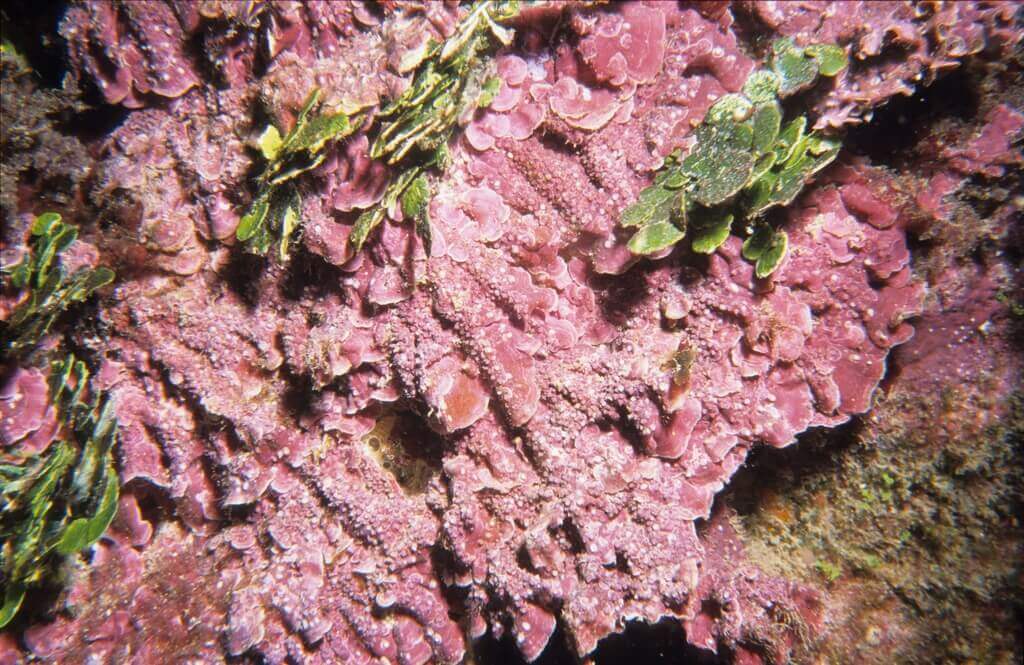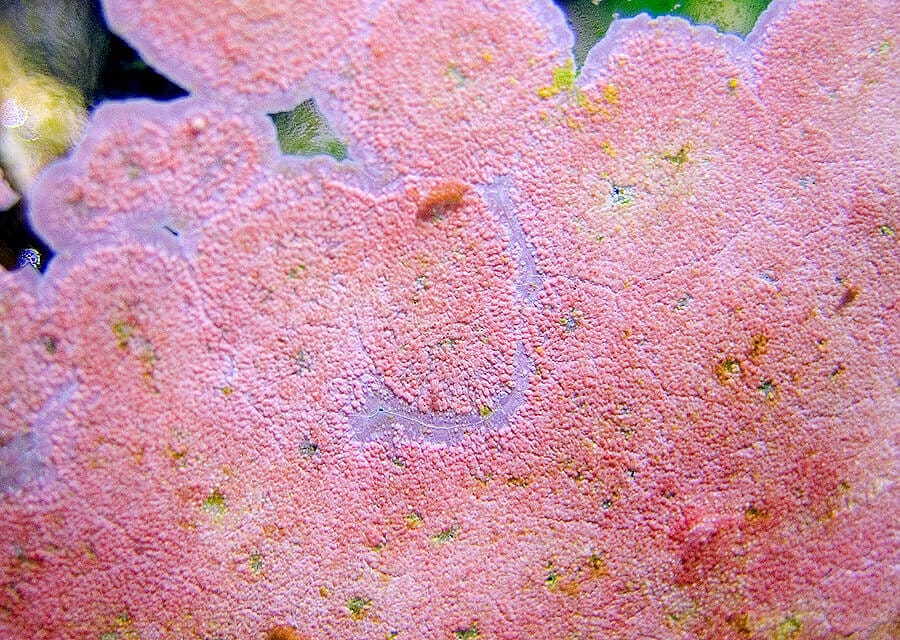Growing Coralline Algae In Your Reef
What is Coralline Algae?

Key Characteristics:
• Calcification: Coralline algae deposit calcium carbonate in their cell walls, which gives them a hard, crusty texture.
• Colour Variety: They can exhibit a wide range of colours, with pink and purple being the most common in reef aquariums.
• Encrusting Growth: They grow by encrusting on surfaces such as rocks, glass, and even the shells of other organisms.
Importance of Coralline Algae in Reef Tanks
Coralline algae offer several benefits to a reef tank, making them an essential component of a thriving marine environment:
1. Aesthetic Appeal:
• The vibrant colours of coralline algae add a natural and visually appealing look to the tank. Their encrusting nature can cover unsightly surfaces, creating a more cohesive and attractive underwater landscape.
2. Stabilisation of Substrate:
• Coralline algae help stabilise the live rock structure by binding loose particles together, reducing erosion, and providing a firm substrate for other organisms to attach to.
3. Competitor to Nuisance Algae:
• By occupying space on rocks and other surfaces, coralline algae can outcompete nuisance algae for resources, helping to keep undesirable algae in check.

4. Indicator of Water Quality:
• Healthy growth of coralline algae is a good indicator of stable water conditions, including appropriate levels of calcium, magnesium, and alkalinity.
5. Habitat for Microorganisms:
• Coralline algae create microhabitats that support various microorganisms, contributing to the overall biodiversity and ecological balance of the reef tank.
Promoting Coralline Algae Growth
To encourage the growth of coralline algae in your reef tank, follow these tips:
1. Maintain Optimal Water Parameters:
• Calcium: Keep calcium levels between 380-450 ppm to support the calcification process.
• Alkalinity: Maintain alkalinity between 8-12 dKH to provide a stable environment for calcification.
• Magnesium: Ensure magnesium levels are within the range of 1250-1350 ppm, as it helps stabilise calcium and alkalinity levels.
• pH: Aim for a pH level of 8.1-8.4 to create favourable conditions for coralline algae growth.

2. Provide Adequate Lighting:
• Coralline algae thrive under moderate to high lighting conditions. Use appropriate reef lighting that supports both photosynthesis and calcification processes.
3. Seed Your Tank:
• Introduce coralline algae to your tank by adding live rock or scraping some coralline algae from an established tank. This will help seed your tank with spores and promote faster colonisation.
4. Ensure Proper Flow:
• Adequate water flow is essential for distributing nutrients and maintaining water quality. Use powerheads or wavemakers to create a dynamic flow environment that supports coralline algae growth.

5. Supplement Trace Elements:
• Regularly test and supplement trace elements such as strontium and iodine, which are beneficial for the health and growth of coralline algae.
Related Articles:
- Calcium In Your Reef Tank – Reef Tank Calcium Tips
- Introducing Macroalgae: Benefits and Best Species for Reef Tanks
6. Avoid Herbivorous Grazers:
• Be cautious with introducing herbivorous grazers that might feed on coralline algae. Some species of snails and fish may inadvertently damage or consume the algae.
7. Regular Maintenance:
• Perform regular water changes and maintain proper filtration to keep nutrient levels in check. High nutrient levels can promote the growth of nuisance algae, which can compete with coralline algae for space and resources.
Conclusion
Coralline algae are an integral part of a vibrant and healthy reef aquarium. Their colourful encrusting growth not only enhances the aesthetic appeal of the tank but also provides stability, competes with nuisance algae, and supports biodiversity. By maintaining optimal water parameters, providing adequate lighting and flow, and ensuring proper supplementation, you can promote the growth of these beneficial algae and enjoy the many benefits they bring to your reef ecosystem.
Whether you are a novice or experienced reef keeper, fostering the growth of coralline algae can significantly contribute to the overall success and beauty of your reef tank. Embrace the colourful wonders of coralline algae and watch your reef thrive!








